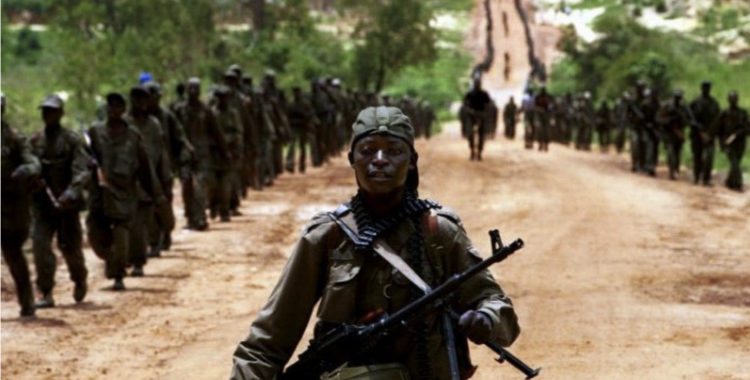In an interview with Lusa, the president of FLEC-FAC, Emmanuel Nzita (son of the historic leader, Nzita Tiago) who has lived in Switzerland since 2000, after being "expelled from Kinshasa" at the request of, as he says, the Angolan government, said told Lusa that the FAC are operational in what he called the "liberated zone".
This area, he explained, comprises the interior forests and a large part of the border region of Cabinda, a province that has been confronted with independence movements for years, physically separated from Angola and which borders the Democratic Republic of Congo (Kinshasa) and Congo (Brazzaville).
"The MPLA administration is in the cities and municipalities and everything outside is controlled by FLEC. They (the military) know they cannot enter there, they do not operate in the city", said the leader of the separatist movement, adding that the soldiers "leave material on the ground" when there are skirmishes to avoid fighting and losing their lives.
This week, FLEC-FAC announced the deaths of seven soldiers and three Brazilian citizens in clashes in the Belize area, information not confirmed by Angolan and Brazilian authorities.
Emmanuel Nzita said that the Brazilians – allegedly working for the Lufo mining company, belonging to Chella Mining of the VMD group (owned by Brazilian businessman Valdomiro Minoru Dondo) – died as a result of clashes on a road close to the mining area.
"They were escorted by the Angolan military when they headed to explore," he said.
Lusa tried to contact VMD using a form available on the website, in the absence of telephone numbers, but received no response.
According to Emmanuel Nzita, these militarized escorts also serve to transport minerals to the city of Cabinda, to then continue on to Luanda, and travel on that road every week or 15 days.
"We know when they come, we have people working there", assured the same person in charge.
The FLEC leader says that in this attack the guerrillas recovered military material, gold and diamonds and questioned the existence of the mine in that location: "they are in a war zone and why don't they want to leave?"
Emmanuel Nzita states that FLEC, in addition to its guerrillas, has the support of the people of Cabinda and accuses the Angolan government of not engaging in dialogue.
"When João Lourenço took office we asked for a meeting, until today he has always avoided it", he highlighted, adding that FLEC is available to discuss various solutions for the province: autonomy, federation, integration or confederation.
"These are the points that FLEC is available to negotiate but the people must decide", he highlighted, suggesting the holding of a referendum.
Regarding the agreement signed between the Angolan government and the Cabindês Forum for Dialogue (FCD), in Namibe, on August 1, 2006, he considered that it was poorly negotiated and was not put into practice.
In 2006, the Angolan Government signed, with one of the wings of FLEC led by General Bento Bembe, a Memorandum of Understanding for Peace and Reconciliation, which included a special status, tax incentives and the end of the military-political conflict in Cabinda.
However, its co-signatory, Bento Bembe, former representative of the FCD and who was deputy of the Popular Movement for the Liberation of Angola in the previous legislature, considered in a recent interview with VOA that the Angolan authorities did not respect the commitments made.
On the other hand, Emmanuel Nzita positively welcomed the presentation of an autonomy proposal that UNITA wants to see discussed in the National Assembly, as it is "an issue that concerns the entire Angolan people".
"We want to see if the MPLA will align in this debate", he commented.
Regarding the fact that the independence movement does not maintain contacts with the Portuguese authorities, he stressed that there are many "economic pressures", thus justifying Portugal's silence on the matter.
"Everything that is being done is the economic exploitation of Cabinda", he criticized, adding: "we have the right to defend our self-determination".







